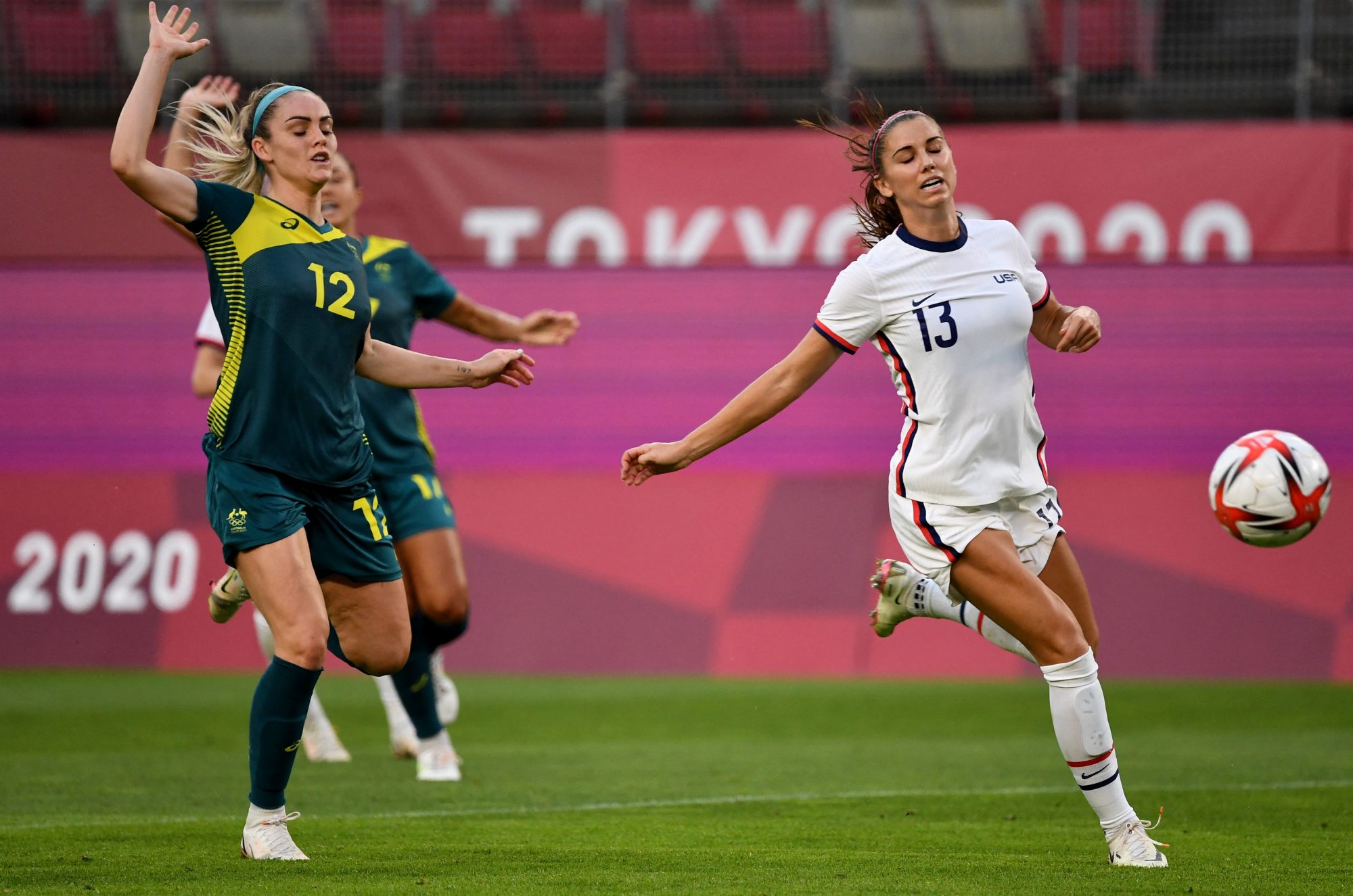The USWNT's dull 0–0 draw with Australia on Tuesday morning—which saw both teams content to kick the ball around and conserve energy in the final stages instead of going for victory—was enough to send them to the Olympic quarterfinals. But after one awful game, one very good game, and now one extremely mediocre game, it's clear that they're going to need to step it up a notch—and fast—if they're going to avoid getting unceremoniously knocked out by either the Netherlands or Brazil next round on Friday.
This was not a game becoming of a world number one. The Americans allowed Australia to dominate possession 65–35 and only occasionally broke through to test the Aussie keeper. Even when they did, like on an early run for Alex Morgan, the final shot was never anything especially powerful or challenging.
"The one thing that surprised me a little bit was that they were a bit passive in their pressing and I'm used to seeing them very very aggressive," said Tony Gustavsson, Australia's head coach, after the draw.
U.S. optimists will fairly point to one opportunity half an hour in that could have made the difference. A Morgan header on the doorstep off a Kelley O'Hara corner kick found the net and looked to be the spark the team needed, but it soon got VAR-ed into oblivion by the slimmest and most infuriating of offside margins. Ultimately, though, against a country that has never advanced beyond the quarters in either the Olympics or the World Cup, it should take more than just one tough break to prevent the U.S. from winning.
This was how close the offside call on Alex Morgan was... #USWNT #Tokyo2020 #Olympics pic.twitter.com/HnbdnL8GXy
— Joe Prince-Wright (@JPW_NBCSports) July 27, 2021
The @USWNT was just inches away from taking a first half lead against Australia after VAR confirmed this goal by Alex Morgan was offside 👀 pic.twitter.com/AUpdupa97b
— FOX Soccer (@FOXSoccer) July 27, 2021
To me, the defining play of the game was another one that got called offside—though much less controversially. This was a Megan Rapinoe through ball on a free kick that sprung O'Hara. Though the flag would go up at the end of the play, before the whistle blew the U.S. had a too-good-to-be-true 3-on-1 opportunity that somehow culminated in Morgan skying a bad shot from a poor angle. Again, this wouldn't have counted even if it had gone in, but the lack of ruthlessness in the execution was especially jarring.
Neither team even got a shot on goal in the final 25 minutes, as both sides seemingly decided that with their places in the next round all but secured there was no need to risk their bodies or their point chasing anything more. One can say that, with the physical demands of the tournament and the age of the U.S. team, this was the correct if unsatisfying strategy from Vlatko Andonovski. But the lack of a win for the USWNT does give this particular squad one dubious honor—their four points is the fewest ever that the Americans have taken from a group stage at either the World Cup or the Olympics. And it'd be tough to argue that these results didn't accurately reflect their performances.
Luckily for the U.S., the Olympic format is very kind to slow starters. Eight of the 12 women's teams advance to the knockouts, so because New Zealand was kind enough to be a punching bag for the rest of the group, neither of the other games even held all that much weight. But the degree of difficulty in this tournament immediately ramps up with the U.S.'s next game against the winners of Group F. That'll be either a rematch with the Netherlands, who made it all the way to the final of the last World Cup, or a date with Brazil, who for all its underwhelming showings in recent competitions is still frickin' Brazil. Both of them present a task that is equal to or arguably greater than Sweden did, but without any of the forgiveness inherent in the beginning of the group stage. Both will demand that they Americans be at their absolute best. So whatever the USWNT does on Friday, it can't look anything like today.






